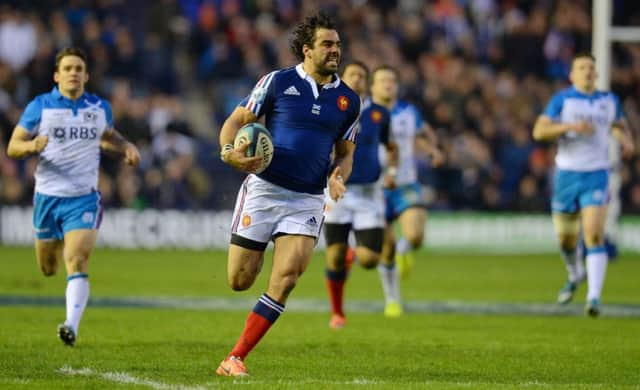Six Nations: Persevere with Duncan Weir


Even after the admirable Yoann Huget’s smartly-taken interception try, the game was still in Scotland’s hands, but a number of wrong decisions, mistaken options and perhaps a spot of panic let France back into the game just in time to snatch a victory they scarcely deserved and must have been surprised by.
It’s easy, of course, to be wise after the event, and to say, for instance, that instead of having Duncan Weir attempt to go for goal with that last penalty, he should have been told to put the ball into touch deep in the French 22, but I wonder how many of those who now say we took the wrong option there thought so at the time. In any case if the kick had gone between the posts instead of just wide, and we had been four points ahead, we would all doubtless have applauded.
Advertisement
Hide AdAdvertisement
Hide AdConsidering how badly we started, with three bad mistakes in the first three minutes, the first of them making a quite unnecessary mess of the French kick-off, we actually did very well to take control of the match and keep that control for most of the 80 minutes. It is even just possible that losing in the manner we did will prove beneficial in the long run, for you often learn more from a defeat of this kind than from a victory.
One felt sorry for Weir. The pass which Huget intercepted was an error in judgment, but it would be wrong to blame him for the defeat. Even after that setback, the game was still there to be won. I imagine Weir is a sufficiently resilient character to put it behind him, resolved not to repeat that sort of error. Fly-halves, as his Glasgow coach Gregor Townsend – and indeed his Glasgow predecessor Dan Parks – could tell him, are in an exposed position, their wrong decisions more evident than those made by any other player on the field, except perhaps the full-back. Weir is not yet the finished article, but he is getting there, and it would be foolish to discard him.
There were more good things than bad, even if there was an element of doubt about both our tries. But this is not uncommon. If another referee might have asked the TMO to track back and check the blocking line Alex Dunbar ran to create space for Tommy Seymour to come on to Matt Scott’s adroit inside pass, well, a different referee at Twickenham might have called Danny Care back when he ran in that tap penalty for England’s first try; Romain Poite seemed to be explaining the penalty to Sam Warburton, when Care tapped it behind his back, almost certainly not from the spot where the infringement took place. These things happen, and more often than not players get away with running blocking lines as Dunbar did.
This wasn’t a good French team, not surprisingly in view of the absence of at least five first-choice players, but, given the mess of their lineout, they did very well to stay in the match. I think the one we beat 21-0 at Murrayfield on our way to the 1990 Grand Slam was worse, but then of course that was a better Scotland team than the present one. The point is, however, that when an international side looks poor, you should usually give some credit to the opposition. France at Murrayfield didn’t look quite as bad as Wales did at Twickenham – but were Wales so poor because England were so good, or vice versa?
After the Calcutta Cup, I suggested that we might already have played, and been defeated by, the best two sides in the championship, Ireland and England, and that we might therefore fare better in the last three matches.
Well, it looks as if the title will go to either Ireland or England, unless the former slip up in Paris, while, since the Calcutta Cup we have narrowly beaten Italy, narrowly lost to France, and have no reason to go to Cardiff without at least some hope of winning. Wales will, of course, start as favourites. We haven’t won at Cardiff since 2002, though we should have done so in that extraordinary match four years ago.
On paper Wales are much the stronger side. But one doesn’t know how they will react to their defeat on Sunday, when they were more thoroughly beaten than the 29-18 score suggests. It was only Leigh Halfpenny’s magnificent goal-kicking that kept them in the game. They looked like a team that were bereft of ideas and that had lost their way.
I don’t suppose Scott Johnson will make any changes other than those rendered necessary by injuries. However, given the ability of Sam Warburton and Dan Lydiate at the tackle point, it would make sense to field a back-row of Kelly Brown at 6, David Denton at 8 and Chris Fusaro at 7. We might look for a bigger wing than Max Evans to mark the gigantic Alex Cuthbert, but I doubt if we have one available. In any case these things work both ways; Cuthbert, inclined to be slow and cumbersome in defence, might well find the light-footed and speedy Evans a difficult opponent.
As for the other Welsh giant backs, Jamie Roberts and George North, I would have our team study the recording of the Ireland v Wales match to see how the Irish cut them down by tackling hard and low.